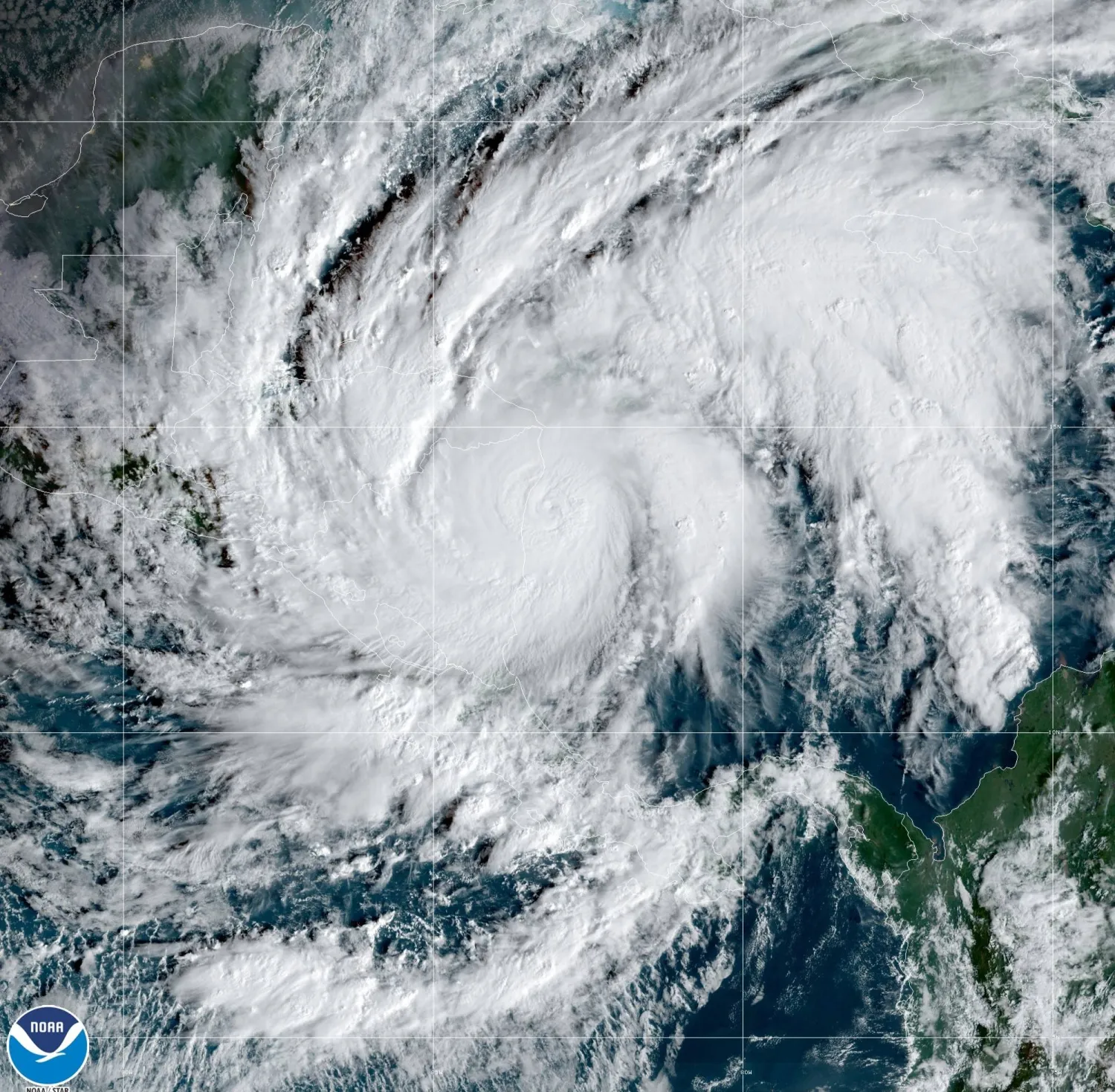Tropical storm Sara left at least four people dead in Honduras and Nicaragua over the weekend, while more than 120,000 were left homeless or suffered damages in floods across Central America, officials said Monday.
Sara weakened to a tropical depression as it passed through Belize on Sunday and was dissipating while moving over the western Yucatan Peninsula, according to the US National Hurricane Center.
One of the dead in hardest-hit Honduras was a three-year-old boy, washed away by a soaring river on Sunday, authorities said.
More than 200 houses in the Central American country were destroyed and some 3,200 damaged, while nearly 1,800 communities were left isolated by flooding, collapsed bridges and destroyed roads.
Farming crops were also severely damaged.
Two deaths were also reported in Nicaragua, with some 1,800 homes flooded and about 5,000 people affected, authorities said.
In Costa Rica, where at least six people died in flooding two weeks earlier, officials reported more than 50 landslides, and some 5,000 people needing emergency assistance.
Storm damage from Sara in Guatemala and El Salvador was not as severe.
Tropical Storm Sara Kills Four in Honduras and Nicaragua

FILE - This GeoColor satellite image taken, Nov. 3, 2020, and provided by NOAA, shows Hurricane Eta in the Caribbean Sea, arriving at Nicaragua's northern shore. (NOAA via AP, File)

Tropical Storm Sara Kills Four in Honduras and Nicaragua

FILE - This GeoColor satellite image taken, Nov. 3, 2020, and provided by NOAA, shows Hurricane Eta in the Caribbean Sea, arriving at Nicaragua's northern shore. (NOAA via AP, File)
لم تشترك بعد
انشئ حساباً خاصاً بك لتحصل على أخبار مخصصة لك ولتتمتع بخاصية حفظ المقالات وتتلقى نشراتنا البريدية المتنوعة







